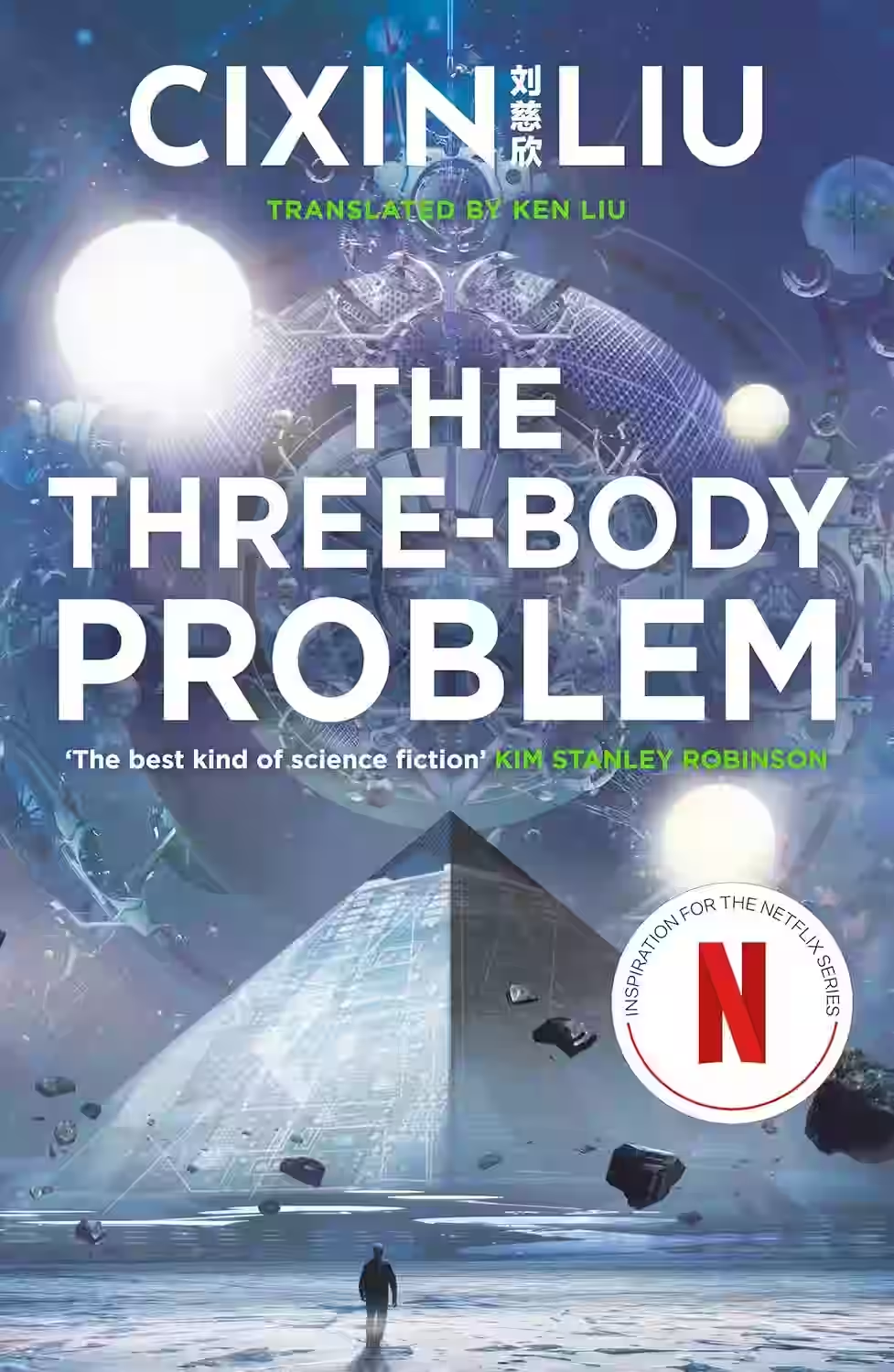
Set against the backdrop of China's Cultural Revolution, a secret military project sends signals into space to establish contact with aliens. An alien civilization on the brink of destruction captures the signal and plans to invade Earth. Meanwhile, on Earth, different camps start forming, planning to either welcome the superior beings and help them take over a world seen as corrupt, or to fight against the invasion.
About The Three-Body Problem Series
This hard science fiction trilogy—The Three-Body Problem, The Dark Forest, and Death’s End—explores first contact with an alien civilization. Set in China and spanning millennia, the story begins with a mysterious virtual game tied to astrophysical phenomena and a looming extraterrestrial invasion. Combining physics, philosophy, and political intrigue, Liu Cixin explores humanity’s place in the cosmos, the fragility of civilization, and the terrifying logic of survival. Thought-provoking and grand in scope, the trilogy has become a cornerstone of modern sci-fi and won the Hugo Award.
About Cixin Liu
A prominent Chinese science fiction author known for his epic and imaginative works, particularly the Remembrance of Earth's Past trilogy (including The Three-Body Problem). Liu's novels explore grand themes of cosmic scale, technological advancement, and humanity's place in the universe with a unique blend of scientific rigor and philosophical inquiry. His groundbreaking work has brought Chinese science fiction to a global audience.
Similar Books
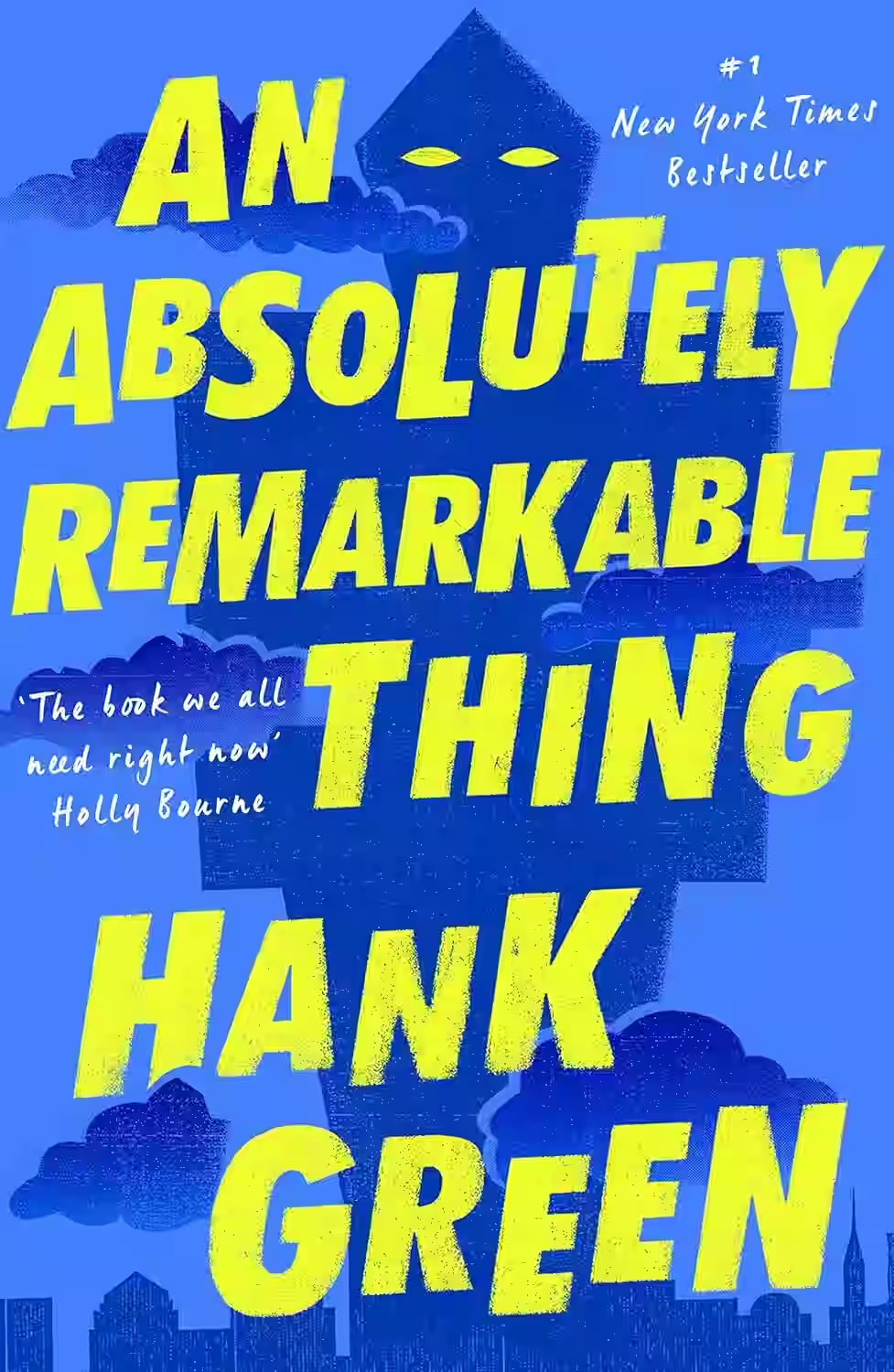
An Absolutely Remarkable Thing
by Hank Green
In 'An Absolutely Remarkable Thing' by Hank Green, readers plunge into a world where a mysterious figure known as Carl transforms society with a series of perplexing statues around the globe. The protagonist April May becomes an overnight celebrity as one of the first to discover and share information about these statues. As the story unfolds, themes of social media, fame, relationships, and the consequences of rapid change become central. Green expertly weaves a narrative that explores the complexities of human nature and the allure of power and recognition. With a mix of humor, suspense, and reflection, this book challenges readers to contemplate the impact of their actions in an increasingly connected world.
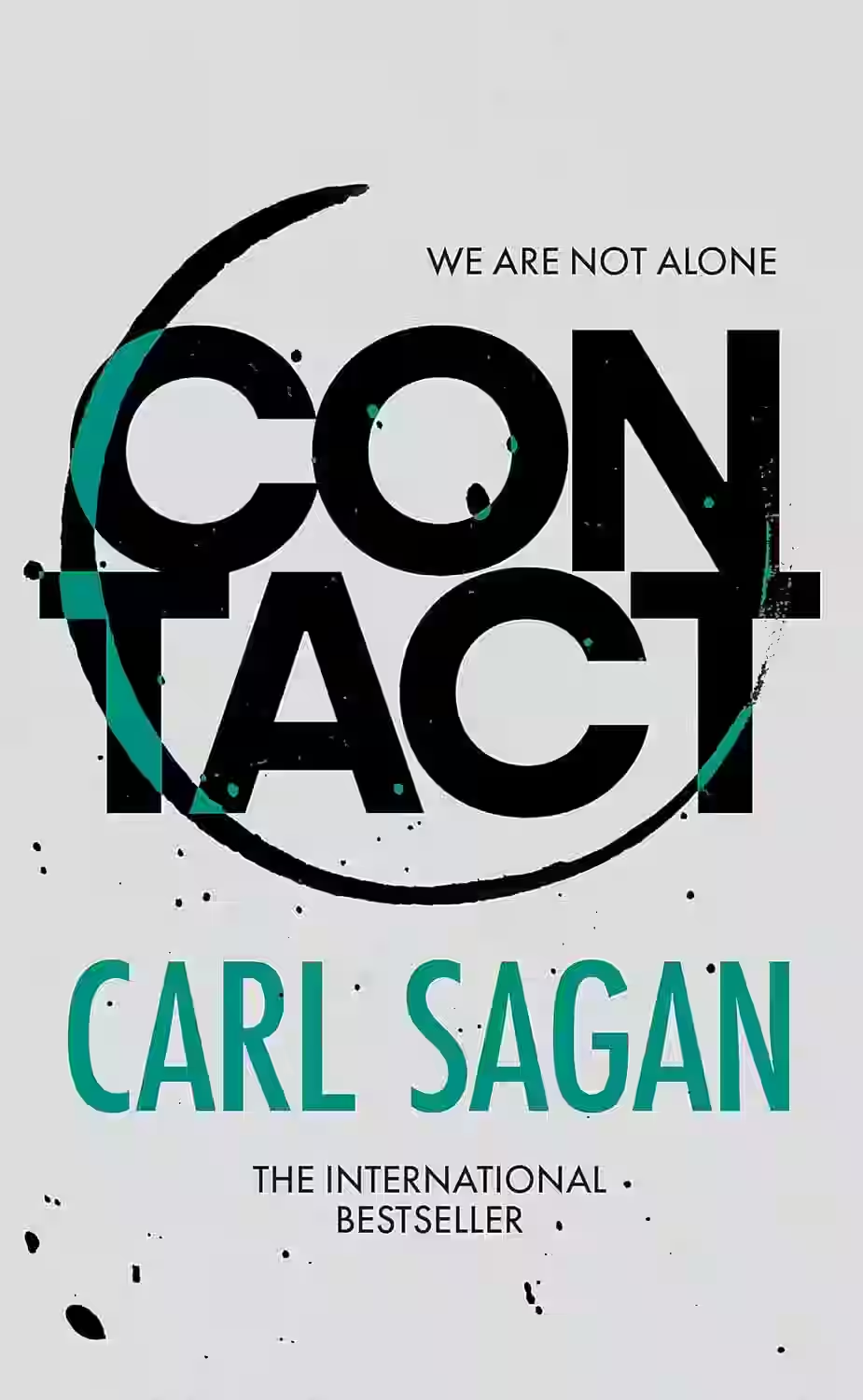
Contact
by Carl Sagan
In Carl Sagan's thought-provoking novel 'Contact,' readers are taken on an exhilarating journey through space exploration, science, and the age-old question of humanity's place in the universe. The story follows Dr. Ellie Arroway, a passionate and dedicated scientist who makes contact with extraterrestrial beings through a mysterious signal from the star Vega. As Ellie navigates the complexities of politics, religion, and the unknown, she embarks on a quest for truth that challenges her beliefs and the very fabric of reality. 'Contact' seamlessly weaves together science and philosophy, offering a captivating narrative that explores the boundless curiosity of the human spirit.
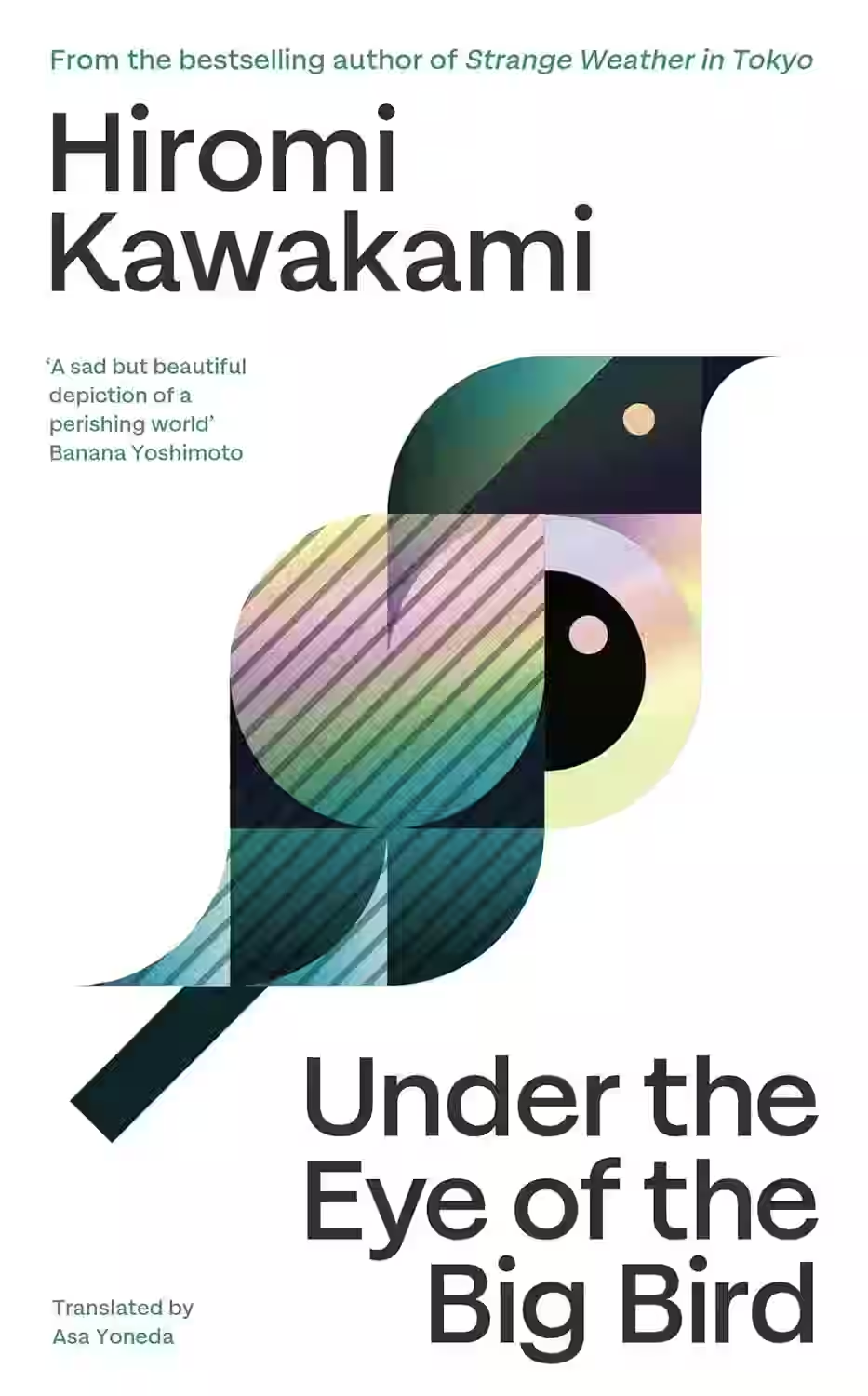
Under the Eye of the Big Bird
Hiromi Kawakami's "Under the Eye of the Big Bird" is a speculative fiction novel that imagines humanity on the brink of extinction in a distant future. Shortlisted for the International Booker Prize 2025, it unfolds over geological eons through a series of interconnected vignettes. In this future, humans live in small, isolated tribes, often overseen by AI entities known as "Mothers." Kawakami explores diverse forms of humanity and reproduction, with some children created in factories from animal cells, and others sustaining themselves like plants. The novel delves into profound questions about what it means to be human, examining themes of evolution, survival, love, connection, and the intricate relationship between humanity and technology. It's a meditative and unsettling vision of a faltering world, yet it also touches upon the resilience and enduring, if flawed, nature of human beings.
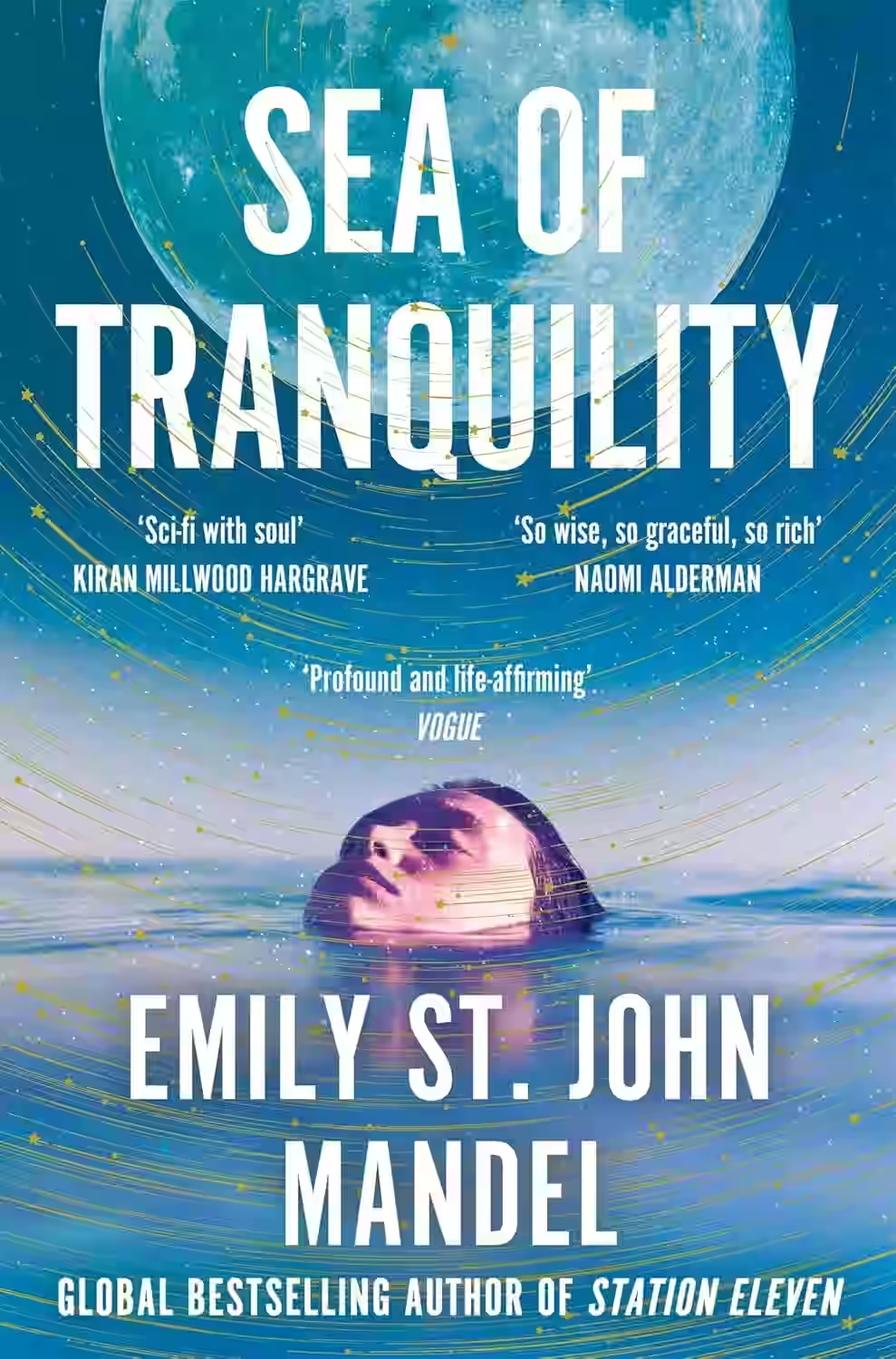
Sea of Tranquility
This evocative passage introduces a multi-layered narrative spanning centuries and locations, from the 19th-century Canadian wilderness to a future moon colony and a "Night City." Edwin St. Andrew's mysterious experience with the violin in the airship terminal sets a strange, unsettling tone. Two centuries later, author Olive Llewellyn unknowingly echoes this event in her pandemic novel, hinting at a deeper connection. Detective Gaspery-Jacques Roberts' investigation into a wilderness anomaly promises to unravel the threads linking these disparate lives and the unsettling possibility of timeline disruption. The blend of historical exile, futuristic settings, and a central, unexplained event creates an intriguing premise.